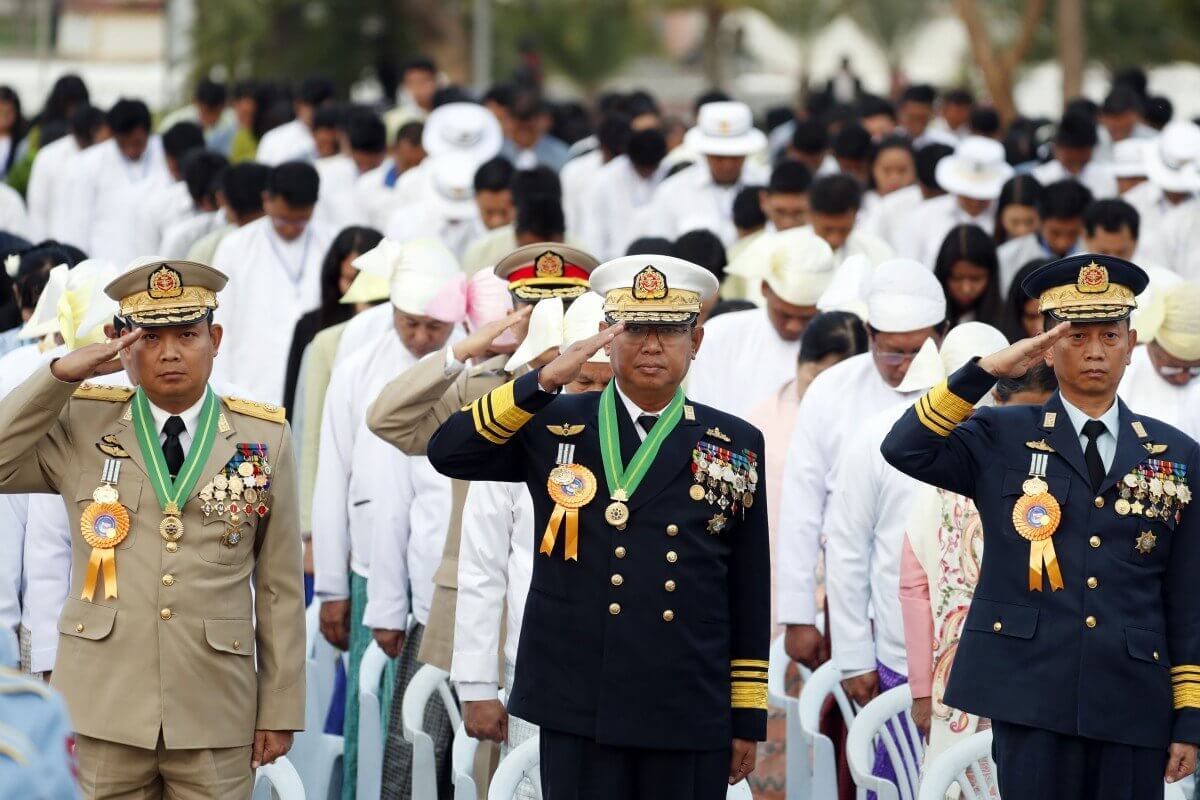Amnesty International, in its latest report on Myanmar, says it has unearthed evidence of the military’s links with international businesses in Japan, South Korea and Singapore. The report claims that the Tatmadaw, Myanmar’s military, has earned billions in profit through a secretive economic conglomerate called Myanmar Economic Holdings Limited (MEHL).
An investigation launched by the international rights group and Justice for Myanmar revealed how global businesses are linked to financing the Tatmadaw, which has been accused of human rights violations and genocide against ethnic minorities, including the Rohingya. Accessing leaked documents, Amnesty International assessed how the military receives dividends through the revenue generated from MEHL, which has shares in diverse sectors, including banking, mining, beer, tobacco, and garment manufacturing.
The report details how the MEHL acts as an unofficial “gatekeeper” for economic dealings in the Southeast Asian nation. The report, titled “Military Ltd: A Company Financing Human Rights Abuses in Myanmar”, uses documents showing the shareholding structure of MEHL, revealing links to serving and retired military personnel. One such document, filed in January 2020 by MEHL with Myanmar’s Directorate of Investment and Company Administration (DICA), shows that 381,636 individual shareholders own the company. This figure includes both active and retired military personnel and 1,803 “institutional” shareholders who are from “regional commands, divisions, battalions, troops, war veteran associations”. Sanctions by the United States (US), Canada, and the European Union (EU) have been imposed on some of MEHL’s military stakeholders and board members.
The Tatmadaw established links with the MEHL in 1990 to support retired and active personnel. However, documents in the report indicate crucial evidence linking the senior Tatmadaw generals with the company and using its profits to fund its armed conflict against ethnic armed groups and minorities. According to the report, among those who directly benefit from the company is Tatmadaw’s Commander in Chief, General Min Aung Hlaing. He owned 5000 shares, between 2010 and 2011, and received an estimated $250,000 in payments, as per the documents listed by Amnesty.
Myanmar’s Tatmadaw continues to be an important decision-maker, playing a prominent role in the state’s politics. The military is constitutionally guaranteed 25% representation in Myanmar’s parliament and also has the power to veto legislation. Therefore, the revelations of the report are pertinent, as it showcases how the Tatmadaw is economically able to sustain itself. Given the power of the military, an understanding of its finance becomes pertinent. In this context, Mark Dummett, Head of Business, Security and Human Rights at Amnesty International said, “These documents provide new evidence of how the Myanmar military benefits from MEHL’s vast business empire and make clear that the military and MEHL are inextricably linked. This is not a case of MEHL unwittingly financing human rights violations – its entire board is composed of high-level military figures.”
The report lists MEHL’s foreign business partners, which include South Korean steelmaker POSCO International, trading company Pan-Pacific, and the Inno Group; Singapore’s RMH Pte; China’s Wanbao Mining (which jointly operates copper mines in Myanmar); and Japan’s multinational beer manufacturer Kirin. Furthermore, the report cites two local companies, Ever Flow River Group Public Co Ltd (EFR), a logistics company, and Kanbawza Group (KBZ), which is involved in mining jade and rubies. Over 20 years, MEHL is believed to given its shareholders an estimated $18 billion, out of which it transferred $16 billion to military units, including those that operated in Rakhine State, where the Rohingya genocide took place.
Following the release of the report, Dummett stated, “in the face of this incontrovertible evidence, businesses who currently partner with MEHL must end these relationships responsibly.” The foreign businesses tied to MEHL are starting to take notice, as the South Korean company Pan-Pacific said it was terminating its business partnership with the conglomerate, while Japan owned Kirin informed Amnesty that it was reviewing its relationship with MEHL. Amnesty’s findings reaffirm the United Nations (UN) report released last year which revealed that businesses within the state generated incomes for Myanmar’s armed forces. However, Myanmar’s Transport and Communications Ministry blocked the contents of the report, saying the website was spreading fake news.
Report Exposes Links Between Japanese, South Korean Businesses and Myanmar Military
In a detailed report, Amnesty International documents how foreign businesses, through their partnership with MEHL, aid human rights abuses by Myanmar’s military.
September 12, 2020

Myanmar military officers at a ceremony to mark the 72nd anniversary of independence day in January. SOURCE: AP
